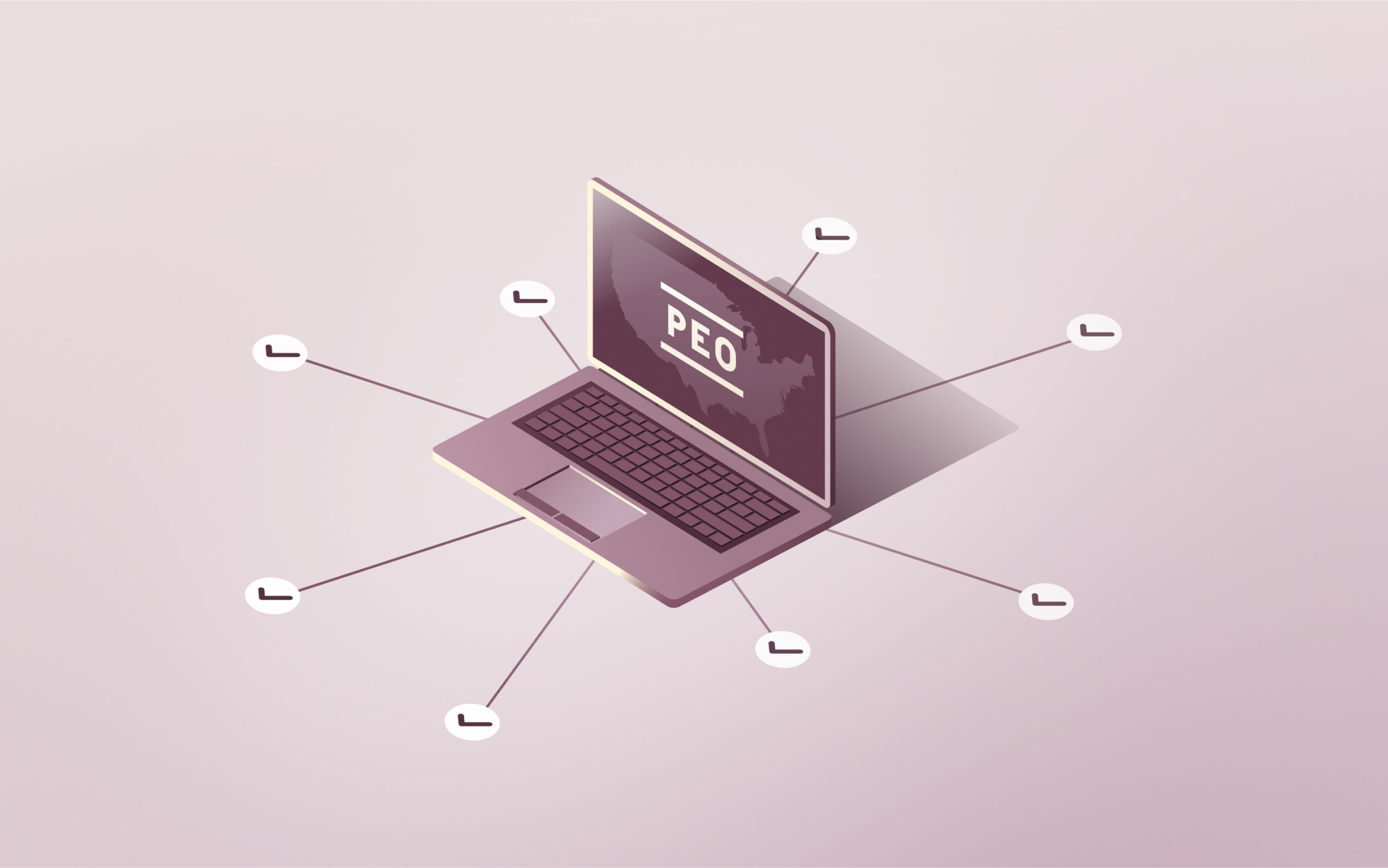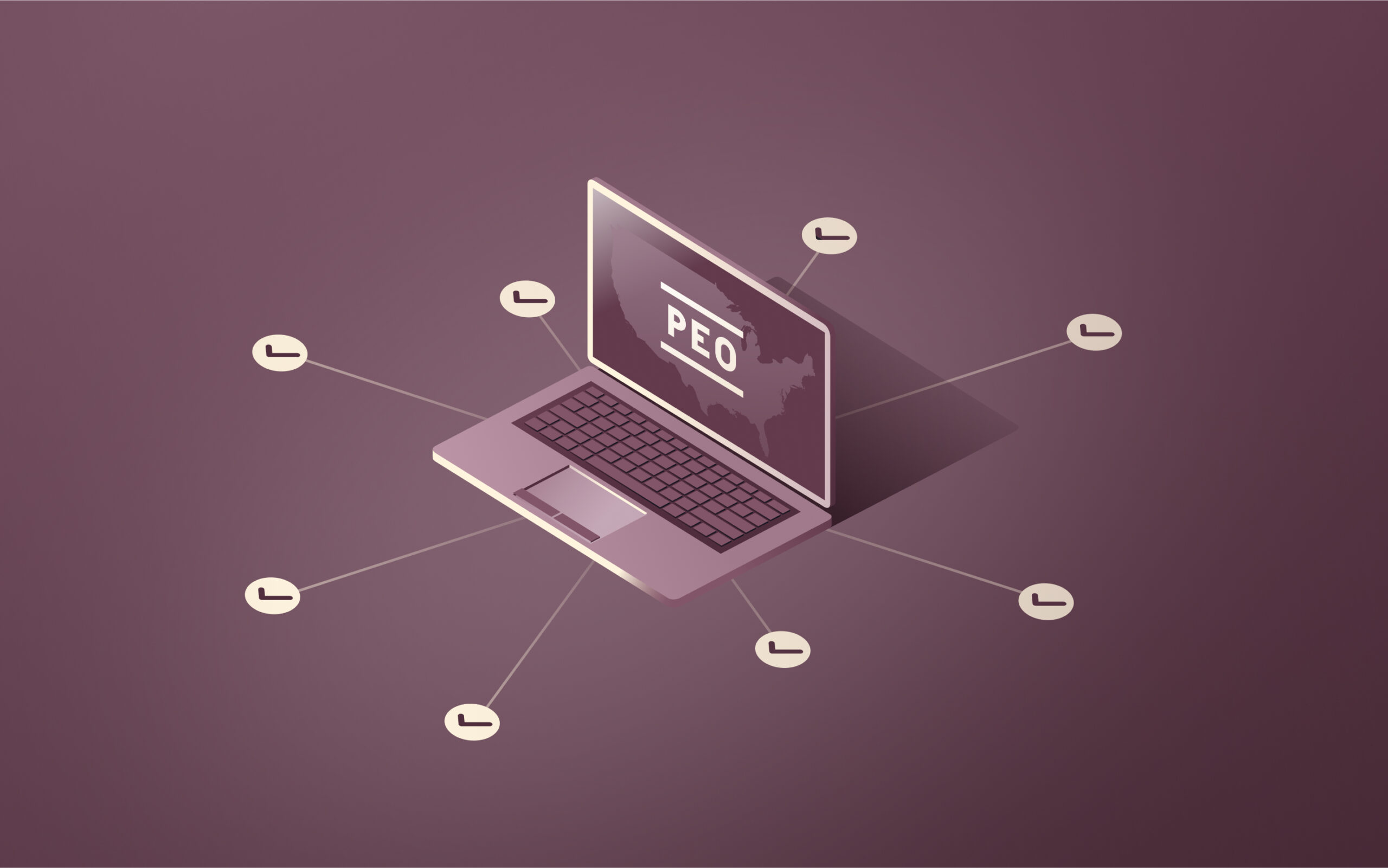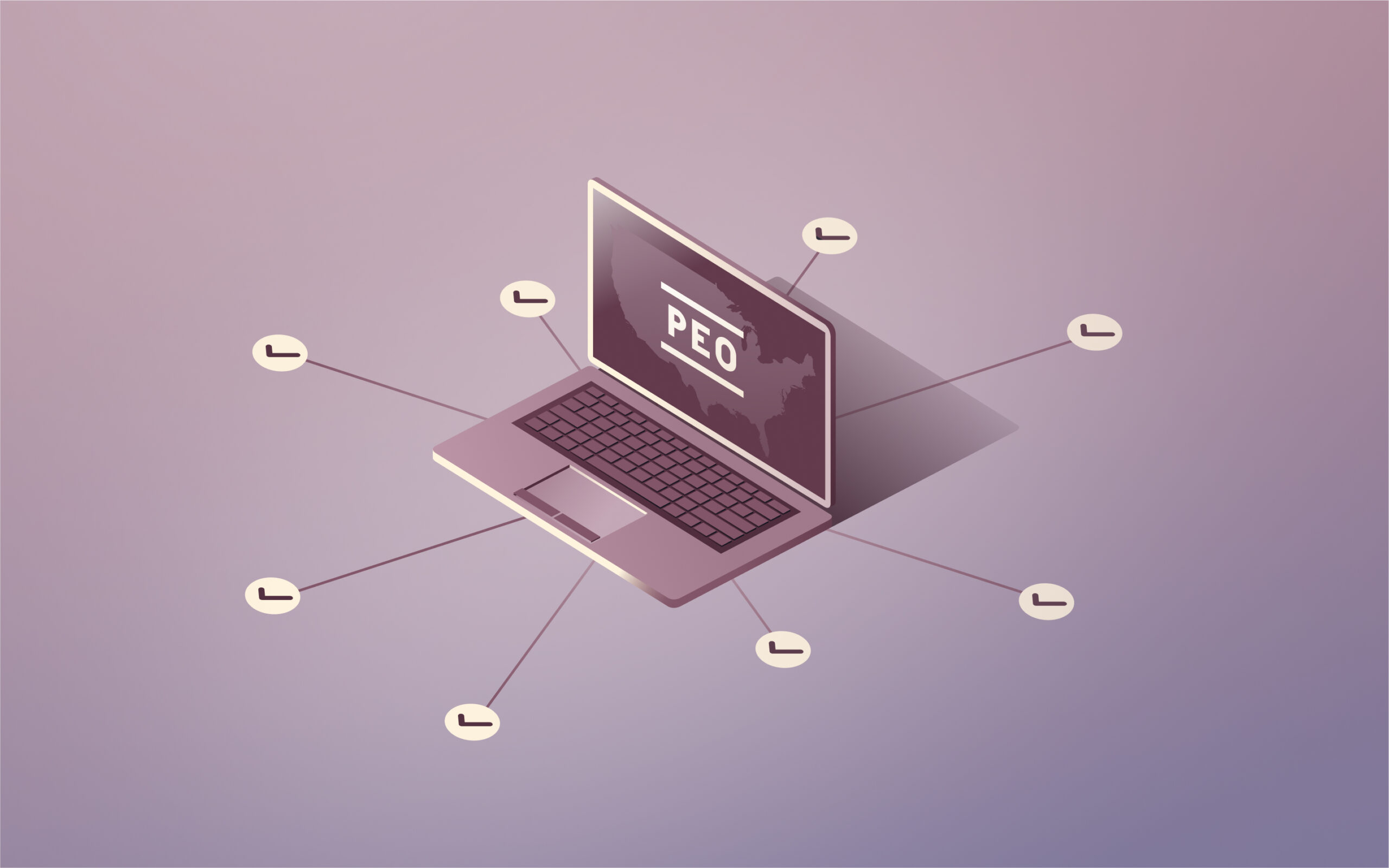PEO in Idaho [2025]

Businesses in Idaho looking to reduce their HR workload can benefit from using a professional employer organization (PEO). PEOs can assist small and medium-sized companies in several ways, including automating and streamlining demanding HR functions like payroll, benefits administration, compliance with federal and state regulations, and managing workers’ compensation insurance. On top of that, a PEO can help businesses of all sizes provide their workforce with access to quality benefits at very competitive rates.
Doing business in Boise, Caldwell, Meridian, or anywhere else in Idaho can be costly. Corporate business taxes in the state are currently 5.8%. There’s also a 6% sales tax, plus some municipalities add their own sales tax. And CNBC recently ranked The Gem State 26th in the US for its business climate. Amid so many expenses, cutting HR costs is just one of the many advantages that Idaho-based businesses can realize from partnering with a PEO provider. If you’re running a business in the state, you and your employees can also benefit from access to more affordable benefits plans.
With so many Idaho PEO companies to choose from, it’s essential to do your research. This article can help you evaluate your options. From managing your HR busy work to ensuring compliance with state and federal regulations, Rippling PEO makes hiring and onboarding people in Idaho and across the country a breeze.
Benefits of using a PEO in Idaho
For business owners in Idaho, using a PEO comes with a number of major benefits: reducing tedious human resources tasks, robust HR support, providing access to superior and cost-effective benefits, and more.
Offload administrative HR work
When you partner with a PEO, your workforce becomes co-employed, enabling shared employer responsibilities between you and the PEO. Under this co-employment arrangement, you are designated as the worksite employer, retaining authority over personnel decisions, wages, and the overall direction of your company, including areas such as marketing, sales, research and development, and customer support.
On the flip side, the PEO becomes the administrative employer, meaning they employ your employees under their federal tax identification number (EIN). This empowers the PEO to manage employment-related tasks, including payroll, benefits, HR compliance, and similar responsibilities.
Harnessing a combination of established procedures, technology, and know-how, PEOs can effectively streamline HR management. Free from the burden of day-to-day administrative tasks, your team can shift their focus to more significant strategic work directly impacting your company's success.
Better employee benefits, at a lower price
PEOs are increasing in popularity in the US. The National Association of Professional Employer Organizations (NAPEO) reports that over 500 PEOs operate nationwide. Between them, they employ 4.5 million people at 200,000 companies. Because each PEO “employs” so many workers, they can leverage “their” workforce to negotiate better benefits prices with insurance companies.
PEOs also use this bargaining power to secure access to quality benefits plans for their partners' employees. Health insurance, mental health support, life and disability insurance, worksite and commuter benefits, retirement plans, and dependent care are some of the benefits a PEO can offer access to. Robust benefits like these help smaller companies and startups attract the best candidates—and keep them.
Idaho employers with 50 or more full-time employees are legally required to provide them with health insurance benefits under the Affordable Care Act (ACA). While Idaho doesn’t have any state statutes requiring healthcare coverage, these benefits are still highly sought after by employees of smaller businesses. An Idaho PEO service can assist companies of all sizes in providing access to mandatory benefits plus other optional benefits that employees desire—often at a lower cost.
Worry-free compliance with Idaho laws
Compliance with federal labor and employment laws is just one area where a PEO can help businesses. PEOs can also ensure compliance with ever-changing state-level and local Idaho laws.
Minimum wage and overtime laws are good examples of complex regulations that differ from state to state and undergo constant revision. While Idaho’s state minimum wage is the same as the federal minimum, companies hiring remote employees across the US can benefit from a PEO’s wage compliance support. A PEO like Rippling can automatically identify minimum wage and overtime violations in Idaho or any US state—so you never have to worry about breaking federal or state laws.
On top of minimum wage and overtime compliance, PEOs offer assistance in many important areas:
- Payroll regulations, including classifying workers correctly (employees or contractors), issuing and filing tax paperwork, collecting and remitting payroll taxes, and compliance with other wage laws
- Benefits laws, including assistance in following relevant state and federal benefits regulations like the Affordable Care Act, COBRA, FSA, and HSA
- Labor laws, including helping your business comply with Equal Employment Opportunity (EEO) laws, displaying state-mandated labor posters, and supplying workers' comp insurance
Failing to comply with any of these laws can be costly. In fact, the IRS estimates that 40% of small businesses are on the hook for payroll compliance violations every year. Avoiding these fines and penalties is another significant benefit of using a PEO.
Dedicated support team
When it comes to HR, PEOs are the experts. When you join one, you gain access to a wealth of knowledge. Their expertise can be invaluable for small businesses and startups that don’t have comprehensive HR resources. A good PEO can offer employers resources, helping you save time, reduce costs, and tackle HR challenges—like streamlining benefits administration, creating employee documentation, training managers, evaluating health and safety practices, and other hurdles your team may come up against.
What to consider when evaluating a PEO service in Idaho
From the Treasure Valley to the Panhandle, Idaho offers a wide variety of PEO services. Keep these factors in mind to find the most suitable option for your business:
- Your business requirements. A few of the services commonly provided by PEOs include:
- Processing payroll
- Managing tax filing
- Employee benefits administration
- Recruiting and onboarding support
- Risk management
- Attendance and time tracking
- Ensuring regulatory and safety compliance
- Outsourcing HR functions
- Affordability. PEOs' pricing structures vary, with options including a percentage of each payroll cycle or monthly fees per employee. It’s important to consider whether you can continue to afford the PEO as your business grows and scales.
- What is the PEO’s experience and reputation? Do they work with many companies in Idaho? Are they highly regarded? Exploring reviews from past and current clients on websites like Capterra and G2 may help you gain insight into the PEO’s performance.
- Benefits packages. Examine the diversity, quality, and price of the benefits options you can access through the PEO. Are they aligned with the expectations and needs of your workforce?
- Benefits renewal rates. Does the PEO provide transparent information on how much the prices of their benefits plans will increase after the initial year? Some PEOs significantly raise renewal rates, surprising businesses with unforeseen costs or forcing them to seek out a new arrangement. Search for a PEO that openly communicates the changes in their renewal rates, allowing you to anticipate potential rate increases.
- System integration. How will the PEO’s processes and technology integrate with your existing systems?
- Does the PEO have expertise in your industry? For businesses in a niche sector, having a PEO with knowledge and experience in the industry can be advantageous.
- Legal and compliance expertise. If your business is required to meet specific federal or state regulations or address other legal concerns, it could be beneficial to seek out a PEO that specializes in those matters.
- What is your exit strategy? At some point, you may want to bring your HR processes in-house or switch to a different solution. Exiting some PEOs can be challenging, as it often requires a complete overhaul of systems. It’s wise to consider this possibility before you partner with a PEO.
Why Rippling PEO is the right choice for your Idaho business
Rippling PEO stands out as the pioneer in uniting HR, IT, and Finance in a single platform. From a speedy 90-second onboarding process to remote IT management, your manual tasks become effortless and efficient. While many PEOs rely on outdated 1980s software, Rippling uses advanced, user-friendly technology.
We handle all crucial compliance responsibilities, such as tax reporting, benefits administration, and automatically flagging minimum wage and overtime violations. Moreover, we offer your team access to top-notch, Fortune 500-caliber benefits at cost-effective rates.
With Rippling, you get:
- HR, IT, and Finance in a single platform
- Versatile and customized employee data reporting
- Solutions for successful remote team management, including state and federal tax registration, easy virtual onboarding, and remote device support
- Access to large-group benefits plans, along with predictable, below-average renewal rates
- Automatic flagging of infractions related to federal, state, and local regulations, accompanied by recommended action plans for resolution
- Streamlined risk management protocols, like ACA and COBRA administration, anti-harassment training, and wage law adherence support
- Access to a vast collection of HR resources, guides, and forms
If you someday opt to manage HR in-house, transitioning between Rippling PEO and our all-in-one workforce management platform is effortless. Unlike other PEOs that necessitate a difficult switch, Rippling offers a smooth transition. Your HR, payroll, and employee information will stay stored in your account, any integrations with other systems will remain undisturbed, and your employees can continue using Rippling with the same logins and procedures.
FAQs about PEOs in Idaho state
What is a PEO, and how does it work?
A PEO is a company that teams up with a business to deliver full-scale HR solutions. Payroll processing, employee benefits administration, HR supervision, and tax reporting can all be handled by a PEO. Typically, they operate under a co-employment model, and the PEO assumes the role of employer of the company’s employees for tax purposes.
How does a PEO arrangement affect control over my employees?
You retain authority over the general operations of your company and the supervision of your workforce, while the PEO assumes responsibility for HR tasks and employment-related issues.
What is a Certified PEO?
A Certified PEO (CPEO) is a PEO that fulfills designated IRS requirements concerning its history, expertise, financial status, and reporting procedures. The voluntary certification doesn’t serve as an endorsement from the IRS. CPEO status provided tax advantages in the past, but those benefits no longer apply.
What size company can benefit from a PEO?
PEOs can work with businesses of any scale, but it’s the smaller and mid-sized businesses that often reap the greatest rewards. Outsourcing manual HR tasks is a great help in reducing administrative costs and allows key staff to concentrate on more strategic initiatives. The partnership also provides access to premium group benefits plans that may have been previously unattainable.
How does a PEO charge for its services?
The cost of a PEO will depend on the scope of services being offered and the number of employees in your company. There might be a set fee for each employee or charges based on a percentage of your overall payroll.
What is the implementation process, and how long does it take to go live?
The PEO will initially gather necessary employment-related information, such as benefits details, payroll data, and employee records. They will then set up their systems to manage all of your HR administrative needs. This often entails integrating their technology with your current systems and initiating new benefits packages. They may also provide onboarding sessions for your staff, explaining the new benefits and procedures, along with ongoing support.
Depending on your size and type of business and the range of services needed, implementation can vary from a few weeks to several months.
Are PEOs regulated?
Yes, PEOs are obligated to follow both federal and state regulations, and many opt to obtain accreditation from industry organizations to enhance their credibility.
Are PEOs in Idaho required to have special certifications or licenses?
PEOs aren’t required to have a license in Idaho. Still, they need a Certificate of Authority from the Idaho Secretary of State to operate as a business. In addition, the Idaho Professional Employer Recognition Act sets minimum standards that PEOs operating in the state must meet. PEOs must also comply with relevant labor and employment laws.
What happens if I want to terminate my relationship with a PEO?
Most PEOs require removing their systems from your business when ending the relationship, which can be a cumbersome and disruptive process. In those cases, you suddenly need to find new solutions to handle your payroll, benefits, and other processes that the PEO previously managed.
With Rippling PEO, transitioning away from the PEO is a breeze. Simply turn it off and switch to our all-in-one workforce management platform, leaving all your data, systems, and integrations in one piece.
In what states is Rippling PEO available?
Rippling PEO is available in all US states.
Disclaimer: Rippling and its affiliates do not provide tax, accounting, or legal advice. This material has been prepared for informational purposes only, and is not intended to provide or be relied on for tax, accounting, or legal advice. You should consult your own tax, accounting, and legal advisors before engaging in any related activities or transactions.





